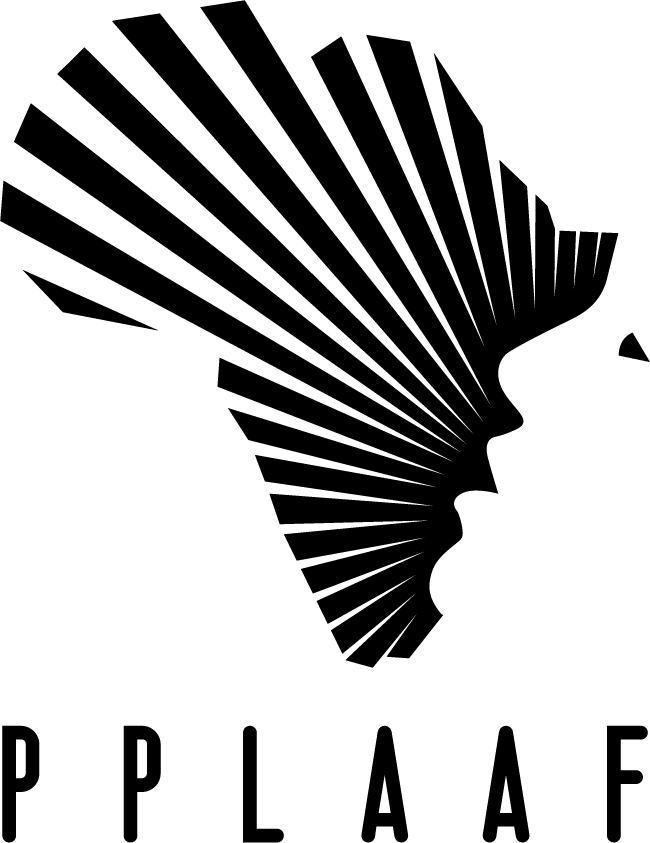Published in 2021
Relevant legislation:
- Constitution of the Republic of Mozambique
- United Nations Convention Against Corruption (UNCAC) 2003
- Southern African Development Community (SADC) Protocol Against Corruption
- Criminal Procedure Code 2012
- Law on Public Probity 16/2012
- Law on the Protection of Victims and Witnesses 15/2012
- Gabinete Central de Combate a Corrupcao (GCCC)
Summary
The Republic of Mozambique is a former Portuguese colony that gained independence on 25 June 1975 after the military coup in Portugal. Since independence, the country has been ruled by the Front for the Liberation of Mozambique (FRELIMO), which initiated a guerrilla campaign against Portuguese colonial rule in September 1964. The Republic of Mozambique has a whistleblower protection law and a dedicated agency that investigates the reports of corruption brought to light by the actions of whistleblowers.
It also has a series of laws that complement each other and effectively provide procedures and protections akin to whistleblower legislation in other SADC countries like Namibia, South Africa and Botswana. This package of laws is designed to curb and combat the effects of corruption and the culture of chicanery, which continues to bedevil developing countries and schemes which strip the public purse of countries like Mozambique to the detriment of its social, economic and political goals aimed at uplifting its populace from poverty and rid its society of the inequality of its colonial past.
Whistleblower Laws and Policies
Whistleblowing is the act of exposing conduct within an institution which is unlawful and harmful to the integrity of the institution and an abuse of trust and authority by its members in the normal course of their duties. This conduct is underpinned by corruption and a lack of transparency and accountability, and very often perpetrated by those individuals entrusted with the task of driving the development goals of these institutions.
The main anti-corruption measures in Mozambique are set out in the following legislation:
- the Law on Public Probity 16/2012 (The LPP)
- the Law on the Protection of Victims and Witnesses 15/2012
The Law on Public Probity (Law 16/2012 or LPP) was enacted to regulate the conduct of public servants and to set certain minimum standards to which they are expected to adhere to in the exercise of their official duties. In terms of Law 16/2012 (the LPP) public officials are required to declare their private interests and disclose their financial assets and holdings, as well as that of their immediate family, including the interests of spouses and minor children. This is to prevent any conflict of interests from arising in the exercise of their duties. These measures ensure transparency of their institution’s affairs and are intended to promote good governance and high ethical standards and honesty.
Article 25 of the LPP expressly forbids public officials from participating in any ventures which may or could lead to possible conflicts of interest in relation to their official duties. A further requirement is that on any high-ranking public official terminating their employment with the state, they may not engage in certain business ventures for a period of two (2) years after termination of their employment.
A problem with the LPP is that public officials are expected to self-identify possible conflicts of interest as they arise and report them to their superior officials. This is a weakness which is highly exploitable and susceptible to corruption encroaching in the public sector.
The penalty for false disclosure of assets is a two-year term of imprisonment set out in article 74 of the LPP, and similarly article 70 of the LPP prescribes that should anyone unlawfully access the asset disclosure registry the same penalty applies. This is an obstacle that hinders whistleblowers from reporting on inaccurate disclosures by public officials seeking to hide their assets. The LPP also prohibits the receiving of gifts by public officials to prevent the spectre of corruption encroaching on how public officials exercise their duties.
The Gabinete Central de Combate a Corrupcao (GCCC) is the agency established in 2005 and tasked with the investigation into reports of corruption and fraud. The GCCC replaced the previous Anti-Corruption Unit established in 2003. The GCCC is located within the office of the Attorney General but it does not have powers of prosecution. Its mandate is to receive and investigate reports of corruption. Reports can be relayed anonymously to protect the identities of reporters of corruption and the integrity of investigations related thereto. The GCCC is also tasked with raising public awareness of corruption and initiating and executing corruption prevention strategies. In essence, the GCCC is one of the organs of state designed to encourage whistleblowers to come forward and expose corruption to enable the culture of accountability and transparency to gain a foothold in Mozambican society.
A problematic feature of the authority and powers of the GCCC is that it is located within the office of the Attorney General and the head of the agency is appointed by the Attorney General. The spectre of political influence in the manner it executes its mandate lurks in the background since oversight of its functions lies in the Attorney General, who is also a political appointee of the President of the Republic of Mozambique. In the case of Mozambique, where the ruling party has a hegemonic hold on power since independence, this situation calls into question the operational independence of the GCCC and the extent to which it is able to investigate corruption at the highest levels of Mozambican society. Ultimately then the authority to proceed to bring to book transgressors of the Law is exercised by the political elites, who have been found to be compromised on occasion.
The Law on the Protection of Victims and Witnesses 15/2012 was enacted to safeguard the interests of whistleblowers and victims who report corrupt schemes. It is Mozambique’s whistleblower protection law in a broad sense. It is the domestication of the provisions contained in the United Nations Convention Against Corruption (UNCAC) and other international instruments of Law which address the safety and rights of victims and witnesses in the fight to eradicate corruption and fraud.
Reporters of corruption run a gamut of risks from general harassment and intimidation, discrimination in the workplace, social ostracism to violent assaults and murder. Without proper guarantees and mechanisms to ensure their safety, whistleblowers would be unwilling to come forward to expose unlawful and fraudulent conduct negatively impacting the stability and integrity of the institutions they are employed in or associated with. The ability to report misconduct confidentially and safely enables the fight against corruption to be borne out to the end as it guarantees whistleblowers will be able and willing to testify in any proceedings arising therefrom, be it criminal prosecution or disciplinary proceedings, provided that those mechanisms also incorporate provisions which safeguard against the aforementioned acts of reprisal. The Law on the Protection of Victims and Witnesses 15/2012 provides for the protection of witnesses in terms of article 32. Reporters of corruption and related misconduct are also offered guarantees of protection during the period the matter is prosecuted. It makes provision for the relocation of witnesses where is necessary, as well as relocation of witnesses’ families.
Secrecy Laws
The culture of secrecy is deeply embedded in the institutions of the Mozambican state and any actual or perceived threats to the interests thereof are decisively dealt with. The Constitution of the Republic of Mozambique in article 48 (1) guarantees the right to freedom of expression, freedom of the press and the right to information. Despite these guarantees, the history of conflict from which the country emerged and its role in its formative years in assisting the liberation movements of Zimbabwe and South Africa and the attendant threats associated therewith from the apartheid regime has continued to shape the responses to perceived threats to the interests of the established order.
Whistleblowing is still viewed with suspicion, as are reporters of corruption as they cast a spotlight on the institutional weaknesses within state agencies; and the exposure of lack of good governance and ethics is often seen as an attack on the state itself. It also reflects on the inadequacies of the Mozambican state to distance itself from the entrenched interests which benefit from corrupt practices. As is the case in Angola, the hegemonic nature of Frelimo’s dominance in Mozambique is often an obstacle to effective whistleblowing.
Media And Speech Laws
The Constitution of Mozambique (as amended in 2007) under article 48 (1) states that “all citizens shall have the right to freedom of expression and to freedom of the press, as well as the right to information”. These constitutional rights are formally recognised and flow from the country’s repressive past. The enforcement of these rights is problematic, particularly in the context of a state which emerged from a single party dynamic, and which only adopted a multi-party system due to the pressures exerted by foreign donors and the punitive effects of a civil war with RENAMO which impacted adversely on the Mozambican state’s efforts to sustain its development goals. The constitution does not specifically state how these rights are to be protected and respected. This is the problematic aspect of protections which are not clearly defined and there is no clear jurisprudence that has emerged around the enforcement of these fundamental rights as is the case in South Africa for example.
The press in Mozambique cannot be said to be operating in an environment that is free and allows for robust debate on issues centred around corruption and fraud, thereby enabling an environment within which a culture of whistleblowing thrives. Since 2017 an armed conflict has raged in Cabo Delgado Province in northern Mozambique led by Islamic insurgents. Official news sources have consistently muted reports on the conflict. Mozambique was ranked 104 out of 180 countries in the 2020 World Press Freedom Index. Many observers state that freedom of the press and access to information is under increased threat by the state.
Mozambique has a Right to Freedom of Information Act promulgated in 2014 as well as a Press Law (1991) which states in article 3 that “the right to information means the right of every citizen to inform and be informed of relevant facts and opinions about the national and international levels as well as the right of every citizen to disseminate information, opinions and ideas through the press.” This provision explicitly grants the right of access to information and by extension, whistleblowers are therefore granted the right to disseminate information critical to the public interests and which further the goal of creating a transparent and accountable society. Despite these guarantees there are limitations in respect of the disclosures of state secrets as well as exempting disclosures on the private affairs of citizens. How then are the ill-gotten gains of corruption and fraud to be brought out into the open given these types of exemptions?
Weaknesses And Possible Reforms
The Mozambican judiciary has major institutional weaknesses which hamper the proper administration of justice, and consequently has a negative effect on the enforcement of whistleblower protections as set out in the Law on the Protection of Victims and Witnesses. Judges are not properly renumerated and are prone to accepting bribes to look the other way in matters involving corruption and proper enforcement of the Law. The function of the judiciary is also marred by political interference and the overarching influence of Frelimo, the ruling party which has dominated the political landscape since independence. The judiciary also lacks proper resources to give effect to the intention expressed in the legislation. Judges are often poorly trained and appointed on the basis of political affiliation.
Whistleblowers are not afforded the full protections expressed in the Law due to the financial constraints of the effecting agencies. Relocation and reassignment of identities is a costly exercise and very often the lack of financial resources negatively impacts on these initiatives to comply with the guarantees of adequately protecting the interests of whistleblowers and witnesses who have made disclosures.
The Mozambican state needs to place greater emphasis on upskilling the knowledge of the judiciary and apply stricter criteria in the appointment of judges and other judicial officers in the lower courts. The state should ensure that when witnesses are relocated, they be placed in employment similar to the status they occupied prior to entering the witness protection programmes and pre-identity reassignment and relocation. The agencies tasked with safeguarding whistleblower protections should be adequately funded and its staff contingent should be legally trained persons who will then be seized with the necessary knowledge on how to implement the provisions of the Law on the Protection of Victims and Witnesses. There needs to be a strategy to inform and educate members of the public about the dangers of corruption to the economic and social welfare of the country. An informed public will be alive to the signs/indicators of corruption and prevent these nefarious practices from taking root and destabilising the economic foundations of Mozambique.
Compliance With International Standards
There is general consensus that Mozambique has enacted legislation that seeks to halt the spread of corruption and the culture of elite entitlement. Mozambique is a signatory of UNCAC and the SADC Protocol Against Corruption. Its legislation has domesticated the provisions contained in the various international conventions of both the United Nations Organisation and the African Union designed to curb the proliferation of corrupt practices and schemes. The various legislative initiatives post-2010 indicate that there is a greater commitment to move the country on the path to improved adherence to transparent administration. The weakness lies in the enforcement thereof. Enforcement is lax due to Frelimo party elites being at the epicentre of the corruption networks. The enactment of the whistleblower protections and the provisions relating to the relocation and reassignment of identity of a witness/whistleblower is proof that Mozambique is trying to keep in step with the development of finding innovative ways to protect the public interest by opposing corruption and bribery. The enactment of the Law on Public Probity is step in the right direction since it seeks to regulate the conduct of public officials and state employees in a more coherent fashion. The public awareness campaigns mandated in terms the LPP to raise awareness of and implement strategies to combat and prevent the spread of corruption, is further evidence of Mozambique’s efforts to keep up with the progress and advancement of international public Law and its obligations in terms thereof.
Knowledge, support and action centers
Centro de Integridade Publica (CIP)
354 Frente de libertao de Mocambique Street Maputo Mocambique
Center for Public Integrity
CIP was established in 2005 by investigative journalists, lawyers, academics, and social scientists committed to deepening democracy in Mozambique. CIP works to promote transparency, good governance, and integrity through research and advocacy activities focusing on the following disciplines: decentralisation and local government, fiscal transparency, procurement, social control and oversight, public integrity, monitoring of anti-poverty programs, and transparency in extractive industries.
- Tel and Fax: +258 21 327 661
- Email: marcelomosse@cip.org.moz Executive director Marcelo Mosse
- Email: adrianonuvunga@gmail.com Program director Adriano Alfredo Nuvunga




